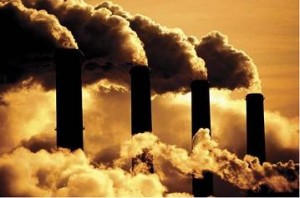GLOBALIZATION AND GLOBAL WARMING
Sustainable development changes along with the economy and it creates a new different social behavior and the way people inhabit the territories. Awareness to the existing environmental issues and needs are necessary for the people to be mindful because life on earth has to sustain without undermining the potential of the planet to support future generations. Sustainable development requires people to focus on adjusting their awareness towards using renewable resources in order to not deplete the planet’s natural resources.
Increase in global consumers due to the technological innovation are the heart of many multi-national businesses across the world. For instance, Consider any well known international product which responds to different needs of men and women all over the world. Such products which have billions of consumers around the world would mean larger consumption of materials and energy. Also the subsequent pollution they cause to the environment. Human made pollutant from combustion, construction, mining, agriculture and warfare are increasing everyday.
According to world global consumption database (data on household consumption patterns in developing countries) roughly 4.5 billion low income people in developing countries spend 5 trillion dollars a year. Indeed, the lower consumption segments spend more than the middle and higher consumption segments combined. They Spend 2.3 trillion dollar a year on food and beverages alone. Only in transport, financial services, information and communication technology (ICT) do the two higher segments combined outspend the lower segments.
Oil accounts for a large percentage of the world’s energy consumption, ranging from a low of 32% for Europe and Asia, up to a high of 53% for the Middle East. India is the fourth largest consumer of crude oil next to USA, China and Japan.
India’s economic growth, like the other countries is closely linked to energy demand. The need for oil which is among the primary sources in meeting energy requirements, is thus projected to grow further. To meet this demand, the government has adopted several policies, like allowing 100 per cent foreign direct investment (FDI) in several segments of the sector, including petroleum products, natural gas, pipelines, and refineries.
A significant contribution to global oil demand is from developing economies like India. The demand for crude oil has been always been a derived demand. Oil is not used for direct consumption. It is mainly used as a fuel for transportation, aviation, synthetic fibres and electricity. So the demand for oil is large in strong economies. Since consumption has been continually increasing. The gap between production and demand is being fulfilled by increasing imports which aggraavates deficit situation.
Also speedy economic development and industrialization, energy demand from Asia has been one of the main contributors to higher oil prices. India trying to catch up with the development levels of west adopted an aggressive development have resisted calls to lower carbon emission to increase / improve the standard of lives of their people (where more than 400 million people have no access to electricity, energy demand is expected to more than double by 2030). Industries have to be directed to install necessary pollution control equipment in a time bound manner and legal action has to be initiated against the defaulting units.
But solving energy problems is a global responsibility that demands action by all countries. The global energy system is on an increasingly unsustainable path. Policies can make a difference but for those to be achieved implementations need to start now. On the other hand, elevated carbon dioxide emissions from industries vehicles, factories etc. have contributed to the global warming which may impact lives of millions of people. steady sea level rise, increased cyclonic activity, and changes in ambient temperature and precipitation patterns, have affected or are projected to affect the subcontinent.
Efficient use of resources and some government policy changes will help to deal with high pricing of the Oil. Similarly we have to promote electric and hybrid vehicles as they helps us to reduce our dependency on crude oil and also start awareness programmes about economical use of fuels. A very serious stringent norms should be imposed or perhaps more refined norms on automobiles to control carbon emission on manufactures and also on in-use vehicle is needed to control to the vehicular pollution. A very important factor in reducing the pollution is the introduction of alternative fuels such as LPG and CNG.
One of the major imports in India is crude oil and finding / exploring the alternatives can have positive impact on India’s economy and the environment. Alternatives to crude oil such as bio fuels such as algae based fuels, ethanol fuels, natural gas which are renewable source of energy which has a reduced emission rate should be used to reduce the import of crude oil (which is 70% of the total oil demand).
Policies need to be drafted to support the lack of technology and infrastructures to enable the use of alternative fuels and give priority to the energy problem and enhanced measures to tackle the problems. Indian Government needs to promote energy conservations and the use of non fossil fuels including nuclear and renewable energies. Steps and measures to expand the domestic oil and gas production needs to be incorporated. Underperformance of development of new wells ( bandhs and blockades included too) Has resulted in decrease in natural gas production.
Better planning of the cities to enable efficient traffic management and discourage the use of individual automobile is necessary. Encouragement to use bi-cycles by providing separate pathways. Automobile industry should develop new vehicles which uses renewable energies like solar energy Biogas etc as a fuel. By this environment will also be protected from carbon emissions. Use of cleaner technologies is a new dimension emerging rapidly for cleaner production and to increase production efficiency, and at the same time eliminate or at least minimise emission and waste at their source rather than treat them at the end of the production chain after they are generated.
Finally, Since the beginning of life on earth, the past few decades have shown a significant ecological disturbance. The evidence for rapid climate change is compelling (Sea level rise, global temperature rise, warming oceans, extreme events, glacial retreat) The fact that the biosphere is a essential system capable of sustaining life in planet, humans must apply their aptitude to working out new social arrangements which are sensitive both to the ecosystem of the biosphere and human population.

